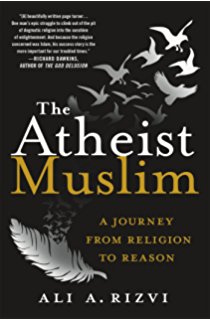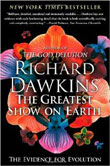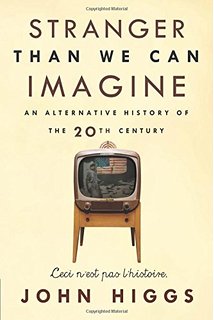The Greatest Show on Earth
Brandon Sun,
January 30, 2011 - David McConkey
I return with reflections on the recent bestselling book by British biologist Richard Dawkins, The Greatest Show on Earth: The Evidence for Evolution.
Dawkins writes the book as a matter of urgency as some 40% of people in North America and Europe are creationists who deny science. Instead of recognizing the process of evolution over millions of years, they believe that God created humanity and other life in their present form just a few thousand years ago.
“The evidence for evolution grows by the day, and has never been stronger,” Dawkins writes. “At the same time, paradoxically, ill-informed opposition is also stronger than I can remember.”
Dawkins starts by dealing with the misconception that evolution is “only” a theory.
He points out the word “theory” in English has two, yet confusingly different, meanings.
One meaning of theory is an explanation of known facts. Another meaning of theory is a hypothesis, speculation or conjecture.
Evolution is a theory in the first meaning: it explains the facts.
“Evolution is a fact in the same sense as it is a fact that Paris is in the Northern Hemisphere,” Dawkins says. In presenting the evidence for evolution, Dawkins writes for a lay audience. Although as a very lay person when it comes to biology, I found the book challenging enough!
But plenty of colour photographs, detailed descriptions, and witty asides make this book both informative and a joy to behold.
Dawkins delivers on his objective to “demonstrate that evolution is an inescapable fact, and celebrate its astonishing power, simplicity and beauty.”
Along the way, he also dismisses the shibboleths “intelligent design,” “gap in the fossil record,” and “missing link.”
From his perspective in Britain, Dawkins at one time regarded creationism as largely a problem in the U.S., which is a more religious society. Now, however, because of both American influence and a growing Islamic presence, creationism is a concern in Europe as well.
Although an avowed atheist, Dawkins insists that this book is not “anti-religious.” He notes that he has worked with church leaders to promote teaching evolution in schools.
Teaching evolution, however, is in retreat. This is because of the growing impact of religion, the ideal of multiculturalism, the particular desire not to offend Muslims, and the shying away from controversy by teachers.
In response to evolution, Dawkins notes, teachers report that students burst into tears, repeatedly scream “No!”, have their parents send menacing letters, and bring a barrage of religious questions to sabotage the class.
So, whatever the official curriculum, many teachers simply choose to skip the topic of evolution. (Skipping evolution appears to be common practice in Manitoba schools.)
Dawkins points out that some school science textbooks now omit the word “evolution” altogether, or use a less contentious expression like “change over time.”
Of course, in the contest between science and religion, science eventually will win. But this could take years, even centuries.
In the meantime, the modern world demands that we citizens become more accustomed and familiar with science. But as Dawkins says, to reject the science of evolution is to deny “not only the facts of biology but those of physics, geology, cosmology, archaeology, history and chemistry as well.”
Finally, we may ask, if we give up the literal biblical story of creation, do we also give up a sense of awe and wonder?
Not at all.
For one thing, religious beliefs can be changed to fit science. Some religions already have changed their beliefs to accept evolution.
For another, a science-based understanding can bestow quite a sense of awe. (Perhaps even more than a belief in creation.)
In The Greatest Show on Earth, Dawkins approaches the world with scientific curiosity as well as compassion, humour, and wonder.
Just imagine: life started (probably only once) millions upon millions of years ago and has since evolved into all that we see today.
“From so simple a beginning,” Dawkins quotes Charles Darwin, “endless forms most beautiful and most wonderful have been, and are being, evolved.”
Just imagine: we humans are related not only to chimpanzees, but also to all other forms of life – from asparagus to zebras.
Again, Darwin: “There is grandeur in this view of life.”
* * * *
See also:
The Evolving Nature Of Belief
Rights and Religions
Other Reviews
QUICK CONTACT:
David McConkey,
Brandon, Manitoba
Send me an email
My Sites / Interests
- Citizen Active
- Columns
- The Great War
- Live Well, Do Good
- Manitoba History
- Obituary Guide
- Reviews
- The War on Drugs
Some Reviewed Books:
The War on Drugs:
A Failed Experiment

The Atheist Muslim:
A Journey from Religion to Reason

Stranger Than We Can Imagine:
An Alternative History of the 20th Century
Heretic:
Why Islam Needs a Reformation Now
Islam and the Future of Tolerance:
A Dialogue

Extraordinary Canadians:
Nellie McClung

The Greatest Show on Earth:
The Evidence for Evolution



